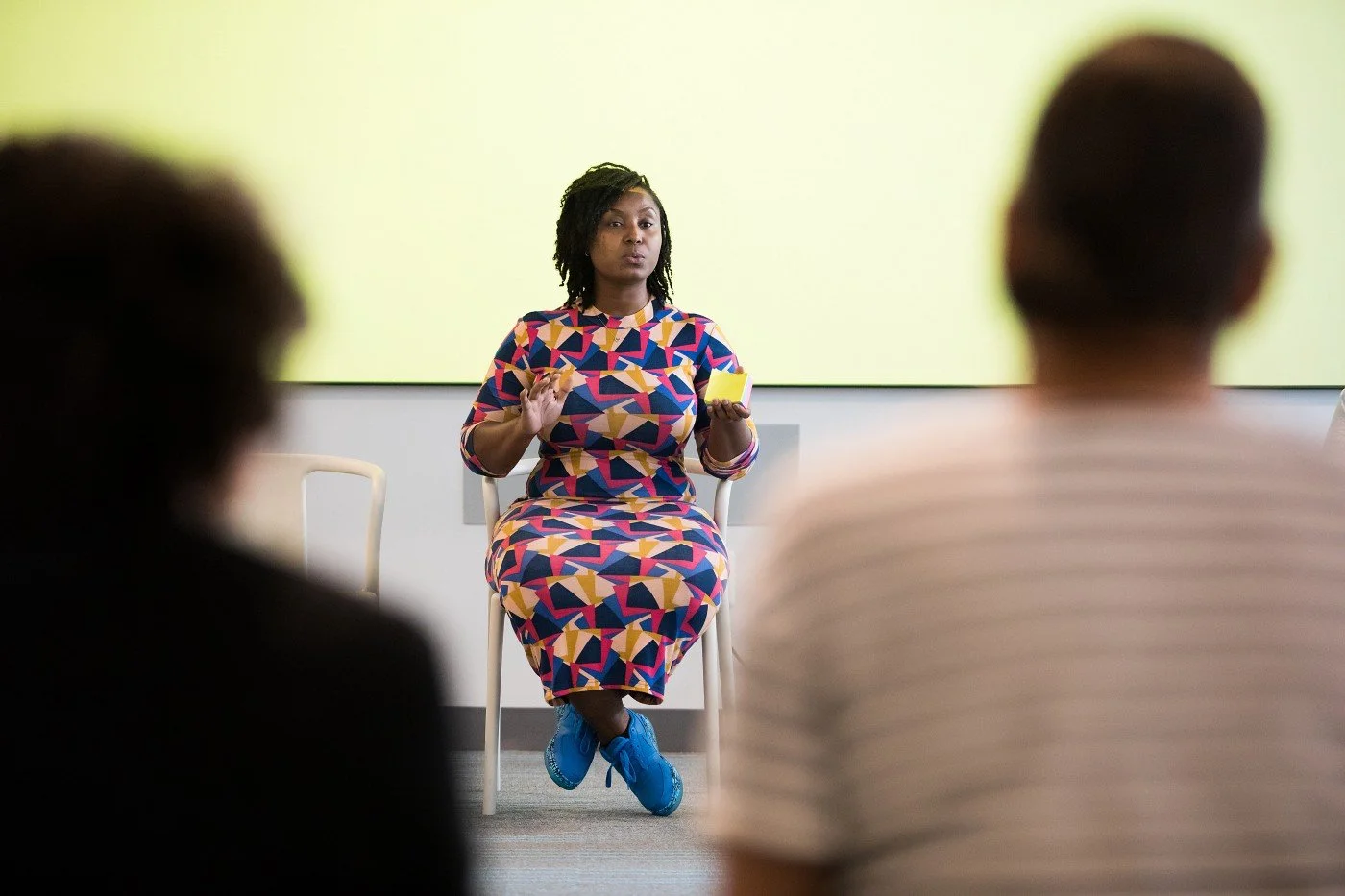Resisting #GrindCulture: An Update from the Village
Trainer Erica Snowden leading meditation practice during a Lion’s Story training.
Last December, as we looked ahead to a new year, we asked members of our village to share the habits, ways of thinking and practices they were planning to leave behind in 2020.
One theme that came out of that was the intent to abandon grind culture.
Here, we check in with Erica Snowden, a Lion’s Story trainer, who was one of the folks hoping to reject the always-on hustle to see how she’s faring so far this year in meeting that goal.
—
I have to say that it has been a roller coaster trying to rest as resistance and resist the hustle culture. I’ve realigned what it can look like for me.
For instance, I went into a pretty aggressive and brutal week of scheduling with meetings until 8:00 p.m. every night. After that, I decided that the next week would be easy, so I didn’t schedule any evening events — and I actually said “No” to some people.
While “no” is an answer, I am trying to spread the practice of resisting grind culture, embracing self care and community care — and I made sure that I communicated my new practice to people and why. That way, not only do they understand why I may not be available at the time and place they’ve requested, but maybe, hopefully, I’m giving them something to think about and encouraging them to do the same for themselves.
While I’m sticking to the resolution, I waiver between being a good practitioner and not practicing what I preach. It’s when I do waiver a bit that I remind myself that part of resisting the grind is not being too hard on myself when I fall into bad habits of white supremacy culture, like perfectionism and urgency.
Part of my resolution was to stay committed to my exercise, and I have really been trying not to cave on this commitment unless resting my body is the form of activism that I need to take. To keep me on track, I love using the Peloton app — the meditation classes with Chelsea Jackson Roberts are amazing. I also attended a youth workshop on mindfulness by Sudan Green of SpiritsUP!
“Saying no to things allows my saying yes to be more powerful. And most of all, I am a greater person when I resist by getting rest.”
Sharing my goal of resting with others means I now have a community helping to keep me accountable. In fact, my Head of School recently ensured that I would take a break after a strenuous week, and, during our weekly check-ins, we’ve acknowledged and prioritized self-care and community care.
Looking forward, in another three months — half-way through the year — I would really like to feel more balanced and less rushed. This sense of urgency is something that unfortunately, though honestly, I battle daily. I’d like to be participating in more outdoor activities for wellness, with better weather and, hopefully, less Covid restrictions. I’m hoping that going into June, I can set summer work hours that allow me to reset and work in a balanced way.
I’d feel great if my community starts to share more about their self care and community care. I feel a lot of progress because resisting grind culture is top of mind for me. When I start feeling overwhelmed and underwater, I ask myself a few questions:
Can this wait?
Will the world stop if I don’t get to it?
Should I ask for an extension or help?
My largest lesson is that sharing my personal resistance openly with others allows them to join me and to also share that same vulnerability and resistance. Saying no to things allows my saying yes to be more powerful. And most of all, I am a greater person when I resist by getting rest.
—
Erica Snowden is a Lion’s Story trainer where she leads racial literacy conversations and training for the organization’s academic-based clients. When she’s not working in the village, she serves as the Director of Equity and Multicultural Education at Friends’ Central School.

